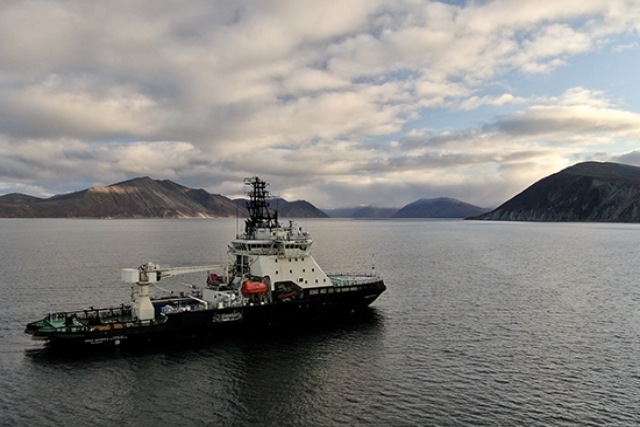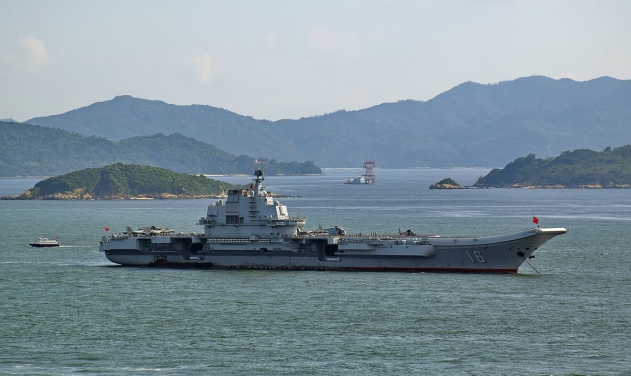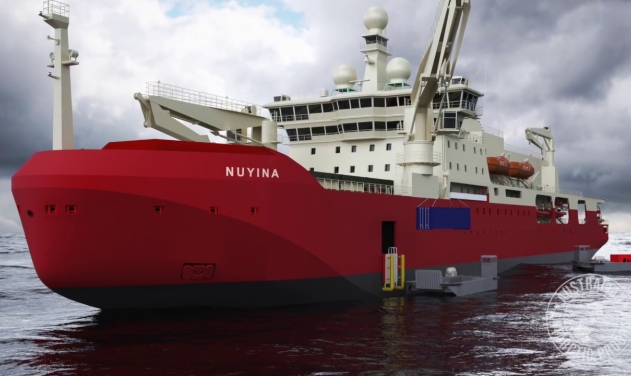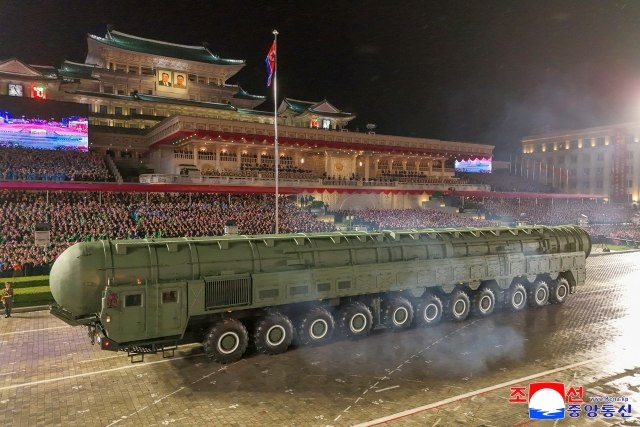First "Combat Icebreaker" for Russian Navy Expected by Year-End
Ice-class ships, adept at navigating 1.7-meter-thick ice, carry a 76.2mm artillery piece and eight Kalibr-K cruise missiles and/or Uran anti-ship missiles in containers.

The Russian Navy is set to receive the ice-class patrol ship, The Ivan Papanin (Project 23550), by the end of 2024, as announced by the Navy’s commander-in-chief, Admiral Nikolay Yevmenov, during an inspection at the Admiralty Shipyards in St. Petersburg.
The Admiralty Shipyards intends to transfer the patrol ship to the Russian Navy by the end of this year. Currently undergoing mooring trials, factory sea trials are scheduled for April. The Navy's Joint Training Center is currently instructing the crew, which is expected to board the ship in March, according to statements from the Russian Defense Ministry.
Admiral Yevmenov emphasized the ship's purported capabilities, stating, "The ship has unlimited seaworthiness and a long cruising range. It carries modern equipment and armaments required for coping with the assigned tasks."
Reports from the shipyards' management were presented to the commander-in-chief, detailing the ongoing serial construction of non-nuclear submarines and ice-class surface ships in alignment with the fleet's equipping plans.
In October 2023, an insider source associated with the defense-industrial complex disclosed to Russian state media that preparations for factory sea trials were underway for the first combat icebreaker, The Ivan Papanin, part of Project 23550 Arktika.
Project 23350 ships, designated for both the Russian Navy and marine Border Guard units, are multifunctional ice-class ships capable of overcoming 1.7-meter-thick ice. The configuration for the Russian Navy includes a 76.2-millimeter artillery piece, along with eight Kalibr-K cruise missiles and/or Uran anti-ship missiles housed in containers.
The keel-laying ceremony for The Ivan Papanin took place on April 19, 2017, with the initial handover to the fleet initially planned for the end of 2023. The ship was launched on October 25, 2019, and the finishing touches were completed while it was afloat. Originally scheduled for mooring trials at the end of 2022 and factory sea trials in the third quarter of 2023, the ship's delivery has been delayed to the end of 2024.












